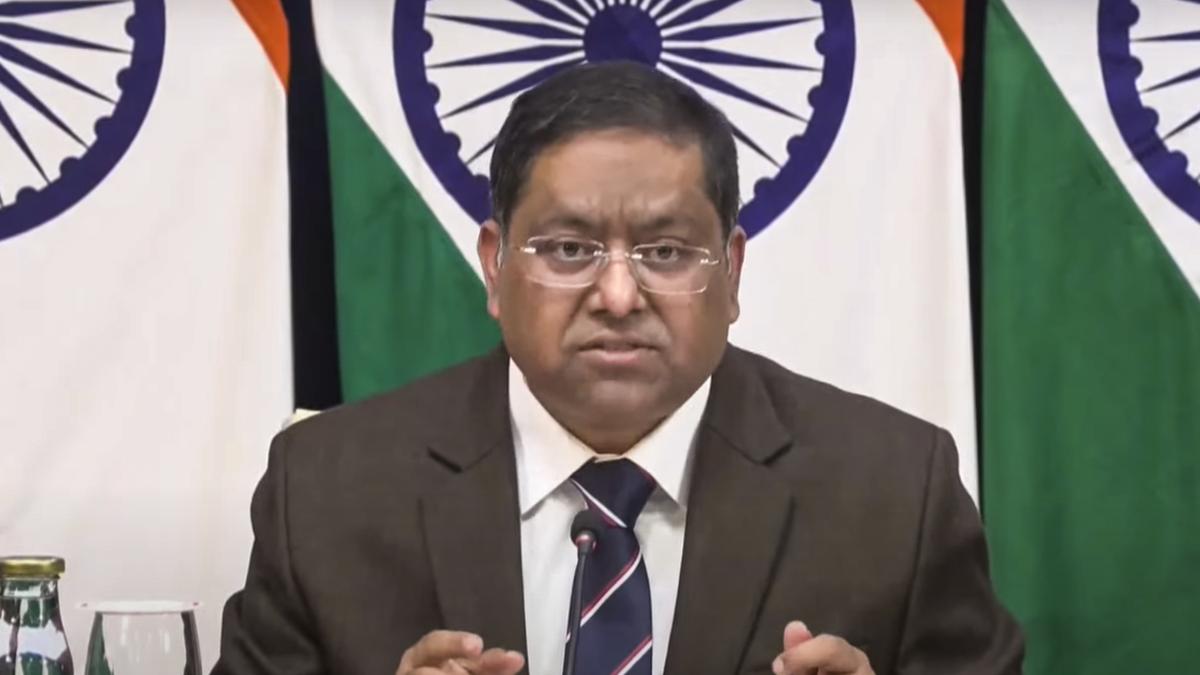 |
|
The recent announcement of a large-scale deportation operation in the United States has brought the issue of illegal immigration to the forefront of international discussions. India, facing a significant number of its citizens residing in the US without proper documentation, has reiterated its commitment to repatriating these individuals. This stance, communicated through the Ministry of External Affairs (MEA), underscores India's official position against illegal immigration and its willingness to cooperate with other nations in addressing this complex issue. The MEA spokesperson, Randhir Jaiswal, explicitly stated that India would facilitate the return of Indian nationals overstaying their visas or residing without proper documentation in the US and other countries, provided sufficient verification of their nationality is provided. This proactive approach suggests a desire to manage its citizens' movements internationally and to maintain a collaborative relationship with the US regarding immigration matters. The emphasis on documentation and verification highlights the importance of official channels and legal processes in managing international migration.
Beyond the immediate issue of repatriation, the article also reveals ongoing diplomatic discussions between India and the US concerning visa issuance. The delay in visa processing has been identified as a significant impediment to strengthening people-to-people and economic ties between the two nations. External Affairs Minister S. Jaishankar raised this matter with US Secretary of State Marco Rubio, underscoring the importance India places on streamlining visa procedures to foster closer relations. This highlights a broader strategic context in which immigration policy is interwoven with broader diplomatic and economic objectives. The efficient processing of visas is not simply an administrative matter; it's directly linked to the success of initiatives aimed at boosting economic partnerships and cultural exchanges. The smoother the visa process, the more likely it is that trade and tourism will flourish, leading to mutual economic benefits.
Despite the backdrop of large-scale deportations, the Indian government emphasized the strong and multifaceted nature of the India-US relationship. Mr. Jaiswal highlighted the robust economic ties between the two countries and the established mechanisms for addressing trade and other bilateral issues. This reiteration of commitment to a strong relationship, even amidst challenges, points to a nuanced approach that seeks to balance cooperation with the assertion of national interests concerning immigration. The statement of remaining in 'close communication' with the US administration suggests a desire to engage in constructive dialogue to resolve issues in a manner that benefits both nations. The overall tone suggests a measured response, prioritizing collaboration while upholding its own immigration policies and protecting the interests of its citizens both at home and abroad. This balanced approach underscores a mature and pragmatic understanding of the complexities inherent in managing international relations in a context marked by significant differences in immigration policies and priorities.
The article also highlights the parallel narrative emerging from the US administration, which announced a 'massive deportation operation'. This communication from the White House Press Secretary, Karoline Leavitt, emphasizes the enforcement of immigration laws and the strong measures being taken to address illegal immigration. This contrast in tone and emphasis serves to underscore the diverse perspectives and priorities shaping this complex and sensitive issue. While India focuses on the repatriation of its citizens, the US administration emphasizes the enforcement of its own immigration policies and the consequences faced by those who enter the country illegally. The two narratives, while distinct, are not necessarily incompatible. They represent different facets of the same complex challenge, highlighting the need for continued dialogue and collaboration to address effectively and collaboratively.
In conclusion, the situation presents a complex interplay of national policies, international relations, and the human realities of immigration. India's willingness to cooperate with the US on repatriation, while simultaneously pressing for improved visa processing, demonstrates a nuanced approach. The overarching emphasis on maintaining strong bilateral ties, despite the challenges posed by differing immigration priorities, underscores the importance of effective diplomacy and collaboration in addressing global challenges. The ongoing dialogue between the two nations, as evidenced by the high-level discussions regarding visas, reflects the need for continuous engagement and finding mutually beneficial solutions in managing complex international issues like immigration and its various facets.
Source: India reiterates readiness to take back nationals ‘overstaying’ in U.S., other parts of the world
